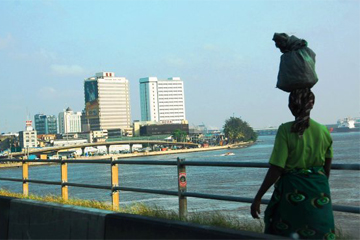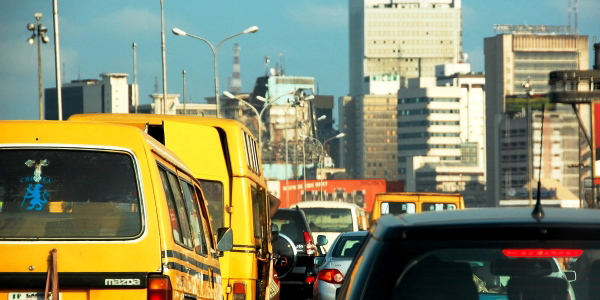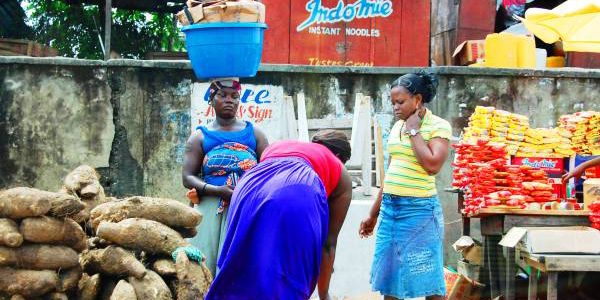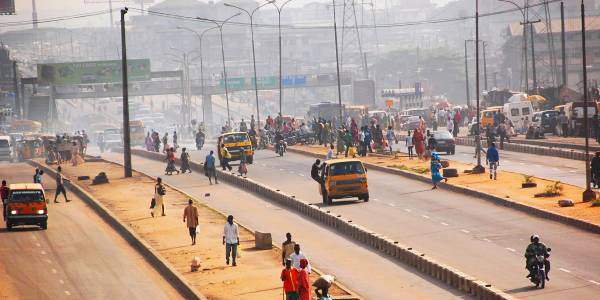Feature photo and photo above by Lola Akinmade.
JOLTING OUT OF BED AT THE SOUND OF MY NAME, I begrudgingly rush over to my parents’ room for daily morning prayers. Names are yelled out in chronological order and being the oldest means I always lose a few seconds of sleep.
I love watching the cap-full of Dettol – a common antiseptic – expand into an amoebic white cloud as I pour it into a bucket of tepid water. Its residual smell lets my mom know we’ve properly showered. I slip into my little blue and white striped uniform with blue flaps for collars. We can guess which schools neighborhood kids attend based on colors, stripes, or checkered pattern of their uniforms.



